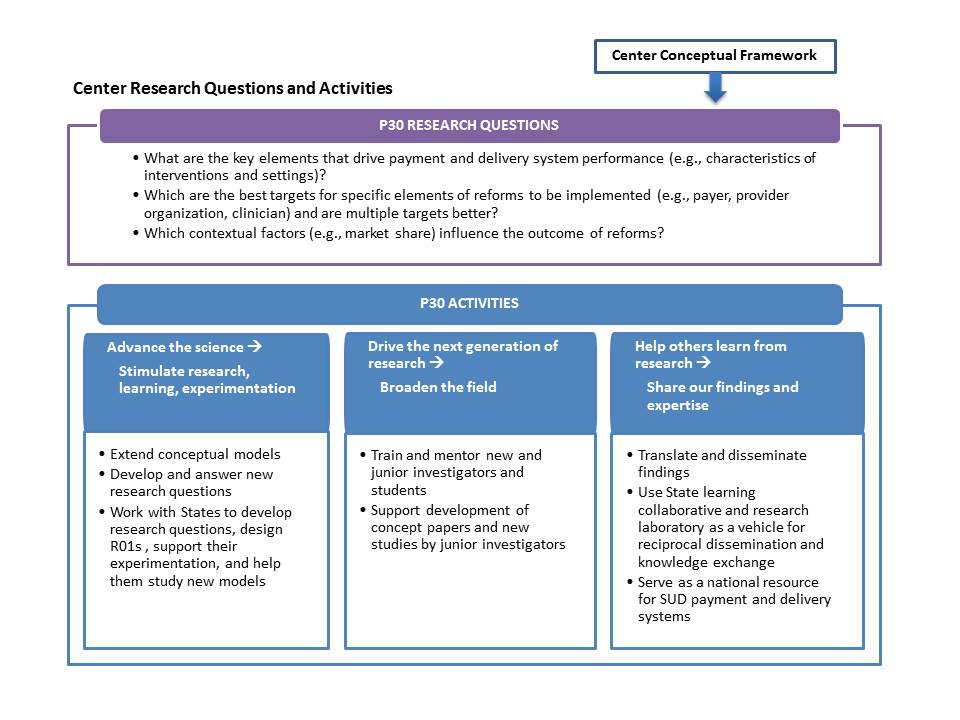About the Center
The Brandeis-Harvard SPIRE Center applies an interdisciplinary research lens to questions of delivery and payment of SUD treatment services needed in light of the dramatic, ongoing changes in the health care delivery system. Through this lens we enhance existing studies and push the field forward so that critical information about access, delivery, payment and quality of SUD treatment services is available in this time of transformative change. The Center focuses on using its research synergistically to advance the science by stimulating research, learning and experimentation; drive the next generation of research; serve as a national resource for researchers, policymakers, providers and other stakeholders; and inform policy decisions that will have profound effects on the cost, quality and availability of SUD treatment services.
The Center is co- directed by Sharon Reif, PhD of Brandeis University and and Haiden Huskamp, PhD, of Harvard University. It is housed at the Institute for Behavioral Health at the Heller School for Social Policy and Management, Brandeis University, and the Department of Health Care Policy at Harvard Medical School, with administrative activities based at Brandeis. Each organization brings a unique set of substantive skills that strengthens the collective expertise offered by the Center. Considered together, we bring the necessary expertise and structure required to tackle sophisticated issues and to conduct rigorous and coordinated research to improve the quality of SUD treatment.
History
The Center was originally established in 1995 as the Brandeis-Harvard NIDA Center on Managed Care and Drug Abuse Treatment. At that time, drug abuse treatment in both the public and private sectors was increasingly being delivered in a managed care environment; therefore, the Center focused on assessing the effects of managed care on drug abuse treatment availability, content, duration, and utilization, as well as on treatment financing and organization. Although managed care was expanding rapidly, little was known about what it actually involved and, more importantly, what its impact might be. The original iteration of the NIDA Center (1995-2003) might be thought of as conducting “first generation” studies that sought to describe the “black box” of managed care, examine its growth, and compare its impact on cost and utilization to more traditional healthcare delivery/payment arrangements.
Since managed care covers such a large part of the U.S. population and is continually changing, it was essential to drive center research towards understanding which specific elements of managed care make a difference in the effective delivery of substance abuse services. The second iteration of the Center (2005-2013) built on the understanding that the ubiquitous use of managed care strategies within the current health care system has not uniformly led to the delivery of effective care. Center research focused on identifying which specific elements of organization, management, financing and payment make a difference in effective drug abuse service delivery, and understanding how incentives within these four areas can be used to encourage or support better quality in drug abuse treatment services.
In its third iteration (2015-present), the Brandeis-Harvard NIDA Center gravitated towards a broader systems perspective, focusing on improving the quality of healthcare. The Center is highly innovative in that it explicitly recognizes that payment and delivery systems are intrinsically intertwined and must be considered together in order to advance the science. The Center also branches out beyond academia, engaging in the real world to learn how payment and delivery system changes are playing out for the payers, provider organizations and clinicians across the country.
Conceptual Framework

Research Questions and Activities


